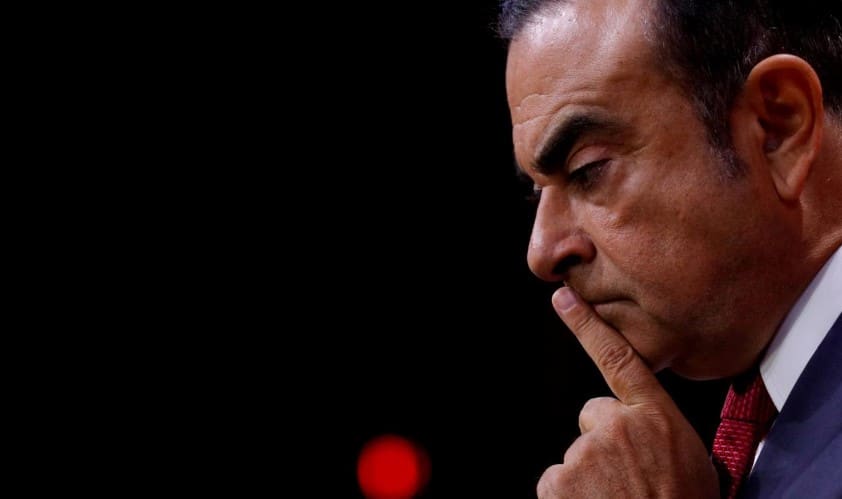
The Tokyo District Court said on Monday it has extended the detention of ousted Nissan Motor Co chairman Carlos Ghosn by 10 days until Jan. 11.
Ghosn, accused of aggravated breach of trust, is facing allegations of making the car maker shoulder 1.85 billion yen ($16.8 million) in personal investment losses.
The latest extension will see Ghosn remain in Tokyo’s main detention center, where he has been confined since his first arrest on Nov. 19 on allegations of financial misconduct.
Since then, he has been re-arrested twice over the latest allegations and on claims that he underreported his Nissan salary for a prolonged period. He denies the allegations.
Calls to the office of Ghosn’s lawyer, Motonari Otsuru, were not answered on Monday, an unofficial holiday in Japan.
A Nissan spokesman said the car maker was not in a position to comment on the latest development in the case.
“The company’s own investigation is ongoing, and its scope continues to broaden,” the spokesman said.
The decision to extend Ghosn’s time in detention comes a day before his 10-day detention period for the latest allegation was set to expire on Tuesday, and follows the release of former Nissan executive Greg Kelly on bail last week after a court ruled against extending his detention while he awaits trial.
Both Ghosn and Kelly were initially arrested in late November and have been charged with underreporting Ghosn’s salary at Nissan over a five-year period from 2010. Both deny the charges.
Nissan’s board in November fired Ghosn as chairman and Kelly as representative director, although both men technically still remain board members who can only be removed by shareholders.
Ghosn’s arrest has rocked the auto industry and strained Nissan’s ties with French automaking partner Renault SA, where Ghosn still remains chairman and CEO.
Ghosn served as CEO of Nissan for more than a decade through 2017 and concurrently held the chairman position at Renault, Nissan and partner Mitsubishi Motors Corp until his arrest.
The three automakers are linked by a complicated share-holding structure under which Renault holds a 43.4 percent stake in Nissan, and Nissan holds a 15 percent stake in Renault, with no voting rights. Nissan holds a 34 percent stake in Mitsubishi Motors.
Since Ghosn’s arrest, Nissan CEO Hiroto Saikawa has called for changes to weaken the clout of controlling shareholder Renault.
Ghosn’s arrest has also put Japan’s criminal justice system under international scrutiny and sparked criticism for some of its practices, including keeping suspects in detention for long periods and prohibiting defense lawyers from being present during interrogations, which can last eight hours a day.
Ghosn is being held in the spartan Tokyo Detention Center, a tower-like structure in the eastern part of Tokyo, over New Year in addition to Christmas.
The detention center, with its many rules and restrictions, makes for a stark contrast with his comfortable, globe-trotting lifestyle.






















